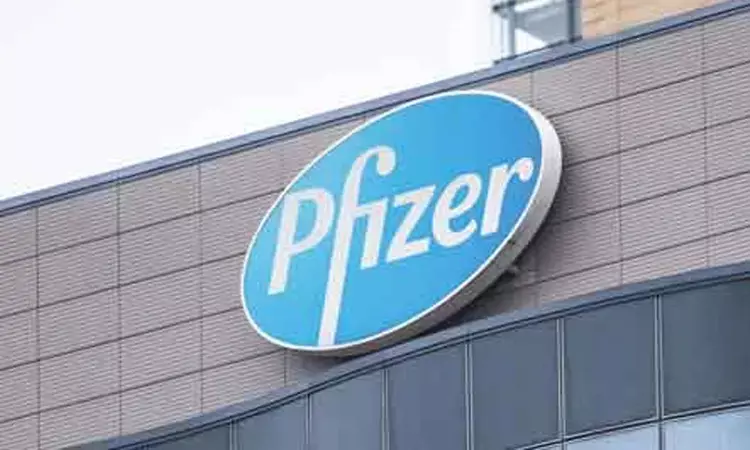- Home
- Medical news & Guidelines
- Anesthesiology
- Cardiology and CTVS
- Critical Care
- Dentistry
- Dermatology
- Diabetes and Endocrinology
- ENT
- Gastroenterology
- Medicine
- Nephrology
- Neurology
- Obstretics-Gynaecology
- Oncology
- Ophthalmology
- Orthopaedics
- Pediatrics-Neonatology
- Psychiatry
- Pulmonology
- Radiology
- Surgery
- Urology
- Laboratory Medicine
- Diet
- Nursing
- Paramedical
- Physiotherapy
- Health news
- Fact Check
- Bone Health Fact Check
- Brain Health Fact Check
- Cancer Related Fact Check
- Child Care Fact Check
- Dental and oral health fact check
- Diabetes and metabolic health fact check
- Diet and Nutrition Fact Check
- Eye and ENT Care Fact Check
- Fitness fact check
- Gut health fact check
- Heart health fact check
- Kidney health fact check
- Medical education fact check
- Men's health fact check
- Respiratory fact check
- Skin and hair care fact check
- Vaccine and Immunization fact check
- Women's health fact check
- AYUSH
- State News
- Andaman and Nicobar Islands
- Andhra Pradesh
- Arunachal Pradesh
- Assam
- Bihar
- Chandigarh
- Chattisgarh
- Dadra and Nagar Haveli
- Daman and Diu
- Delhi
- Goa
- Gujarat
- Haryana
- Himachal Pradesh
- Jammu & Kashmir
- Jharkhand
- Karnataka
- Kerala
- Ladakh
- Lakshadweep
- Madhya Pradesh
- Maharashtra
- Manipur
- Meghalaya
- Mizoram
- Nagaland
- Odisha
- Puducherry
- Punjab
- Rajasthan
- Sikkim
- Tamil Nadu
- Telangana
- Tripura
- Uttar Pradesh
- Uttrakhand
- West Bengal
- Medical Education
- Industry
Firm that managed Pfizer COVID vaccine trial sites falsified data, claims BMJ

New Delhi: In a shocking revelation, a whistleblower has accused Ventavia, a Pfizer Covid-19 vaccine phase 3 clinical trial subcontractor, of falsifying data, unblinding patients, and failing to follow up on adverse events in the clinical trials of the Covid-19 vaccine manufactured by US pharma giant Pfizer and its German partner, BioNtech.
The whistle blower who was employed at the research organisation Ventavia Research Group, has informed the British Medical Journal (BMJ) that in the first two weeks of her employment in September 2020, she repeatedly informed her superiors of poor laboratory management, patient safety concerns, and data integrity issues.
She additionally informed the BMJ that she had recorded various issues by taking images with her phone to support her allegations. As per the journal, one photo revealed that needles were dumped in a plastic biohazard bag rather than a sharp container.
Furthermore, another picture indicated vaccination package materials with trial participants' identifying numbers inscribed on them that were left out in the open, potentially exposing participants' identities.
Moreover, the BMJ highlighted difficulties witnessed by the whistleblower, that include:
• Participants placed in a hallway after injection and not being monitored by clinical staff
• Lack of timely follow-up of patients who experienced adverse events
• Protocol deviations not being reported
• Vaccines not being stored at proper temperatures
• Mislabelled laboratory specimens, and
• Targeting of Ventavia staff for reporting these types of problems.
However, in view of the above forgoing, Ventavia is allegedly said to have done little to address the issues.
When repeated warnings went unanswered, the whistleblower moved to file a complaint with the US Food and Drug Administration (FDA), the country's main regulatory authority, by email in September 2020 immediate after which she got fired.
Both BioNTech and Pfizer collaborated to develop the Pfizer-BioNTech COVID-19 Vaccine, which is based on BioNTech's patented mRNA technology. BioNTech holds marketing authorizations in the US, the European Union, the United Kingdom, and Canada, as well as emergency use authorizations or equivalents in the US (jointly with Pfizer) and other countries.
Ventavia sites were not inspected by FDA
In August this year, after the full approval of Pfizer's vaccine, the FDA issued a summary of their inspections of Pfizer's pivotal study. Surprisingly, Ventavia's facilities were not among the nine sites inspected, and no inspections of sites where adults were recruited in the eight months following the December 2020 incident, according to the BMJ.
As reported by the BMJ, explaining the cause of the limited investigation, the FDA's inspection officer cited, "The data integrity and verification portion of the BIMO [bioresearch monitoring] inspections were limited because the study was ongoing, and the data required for verification and comparison were not yet available to the IND [investigational new drug]."


